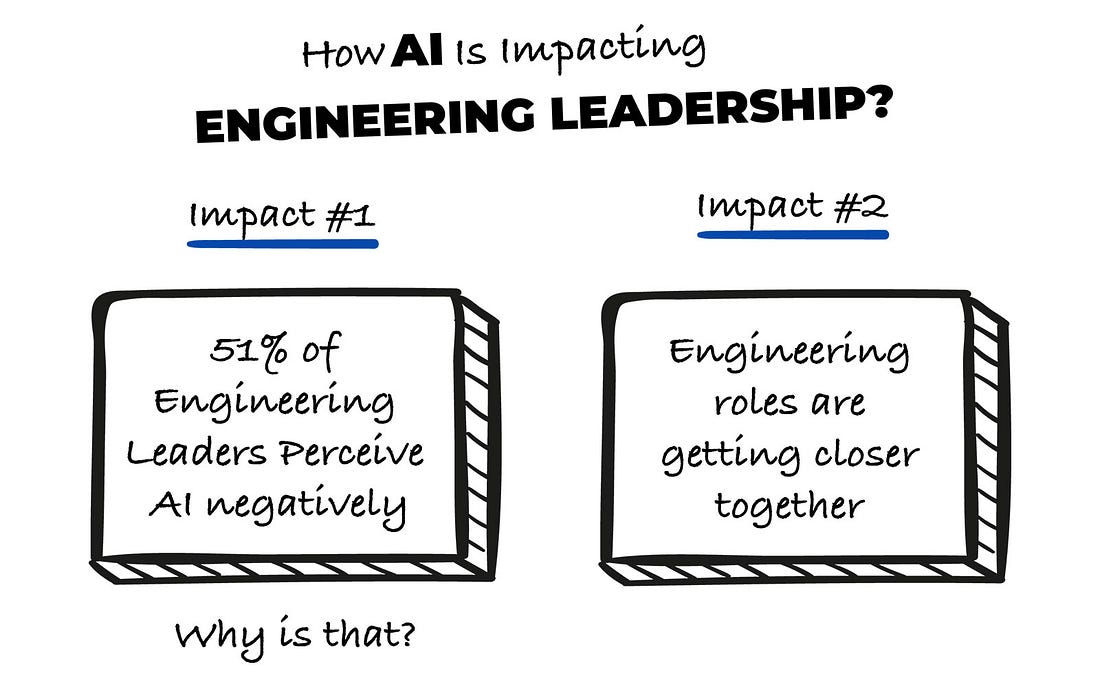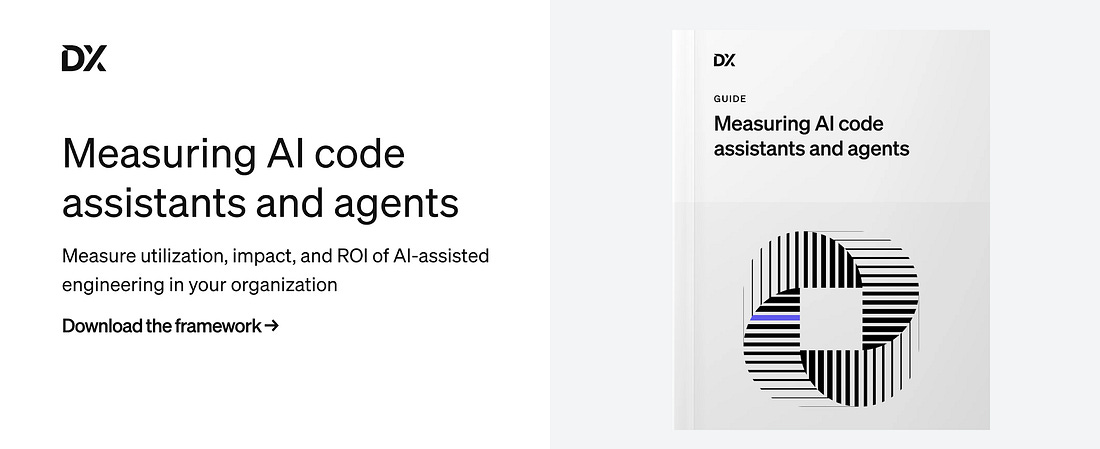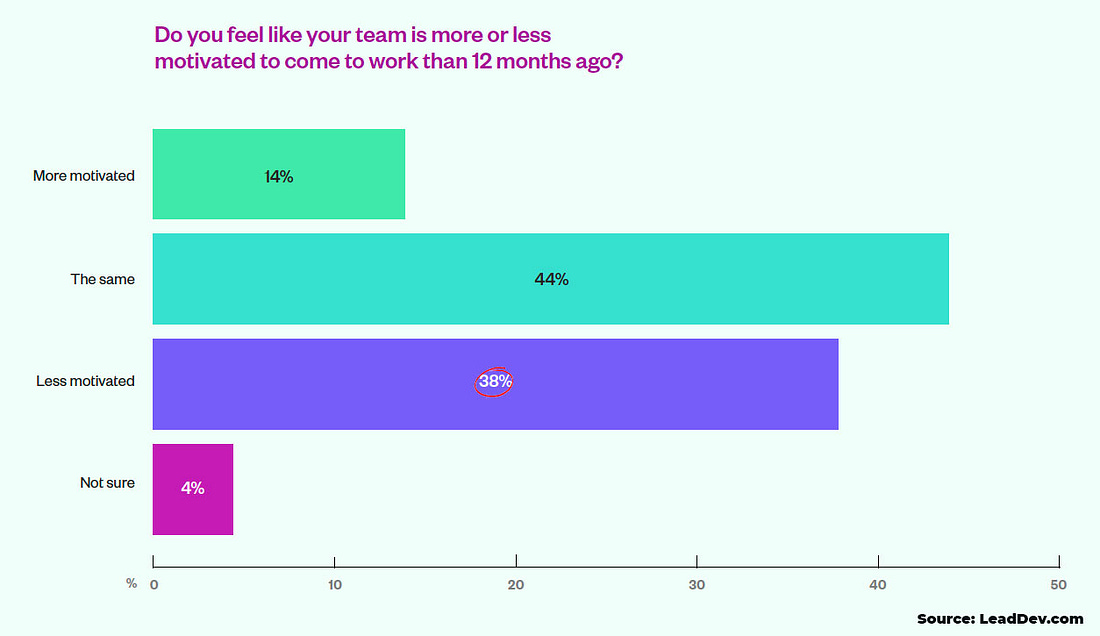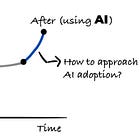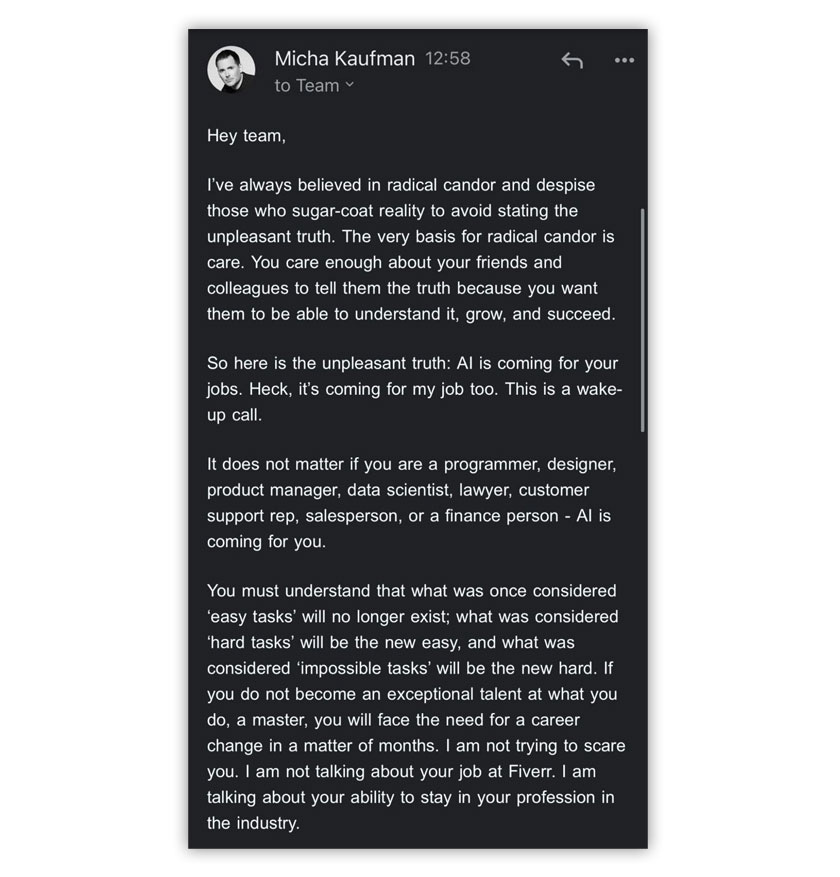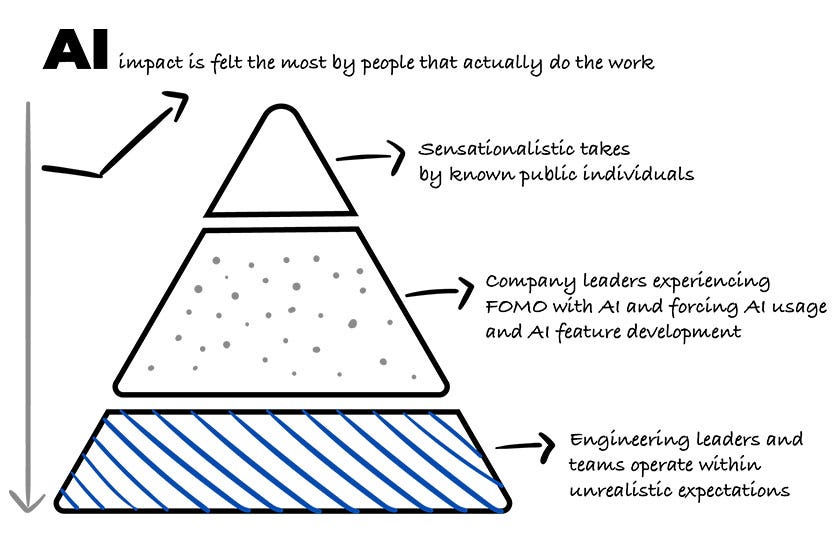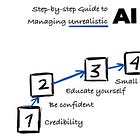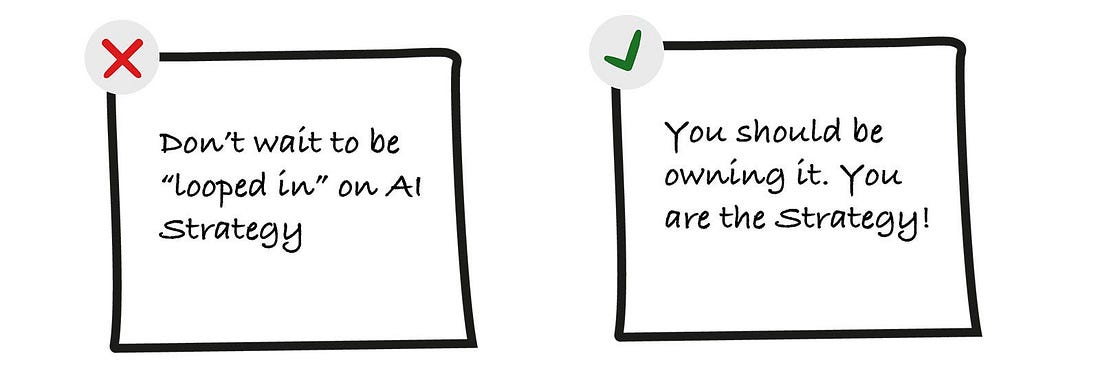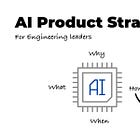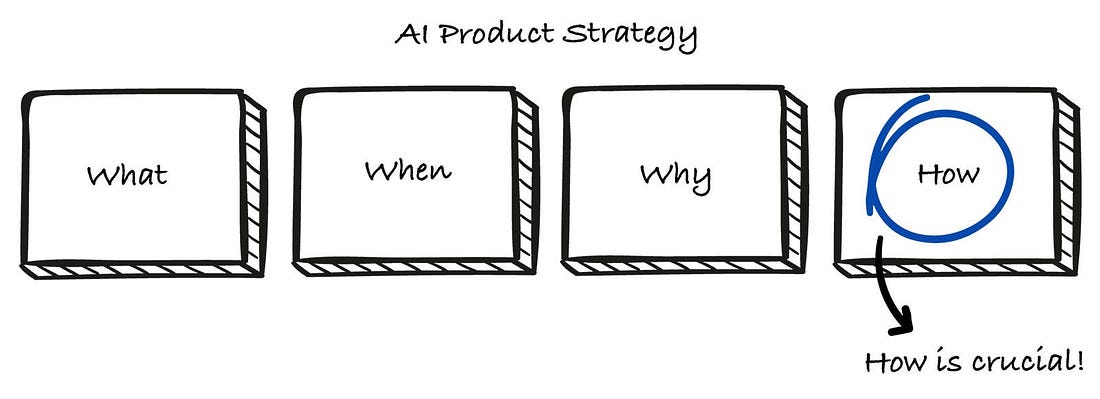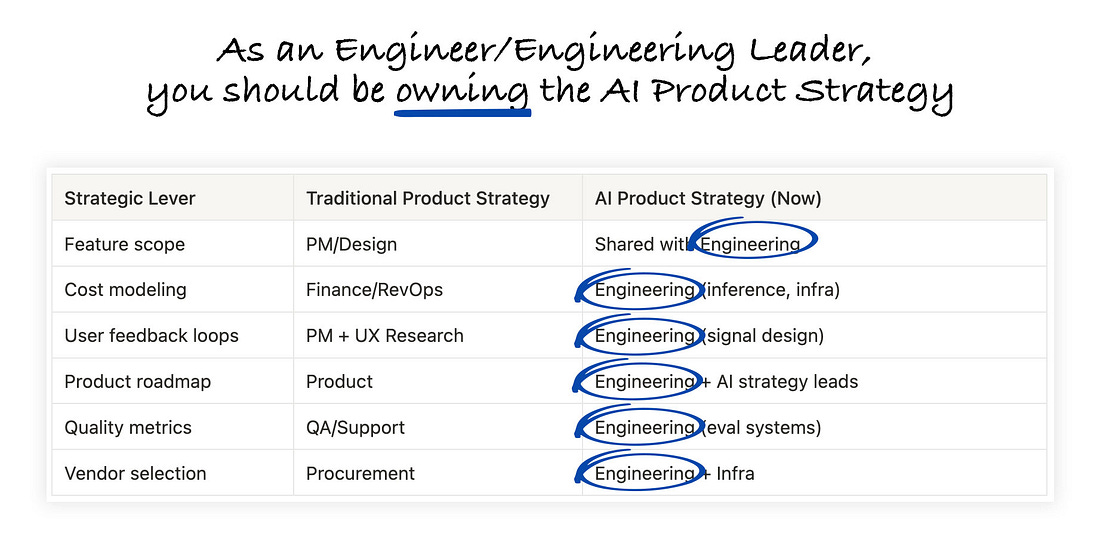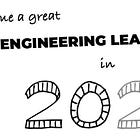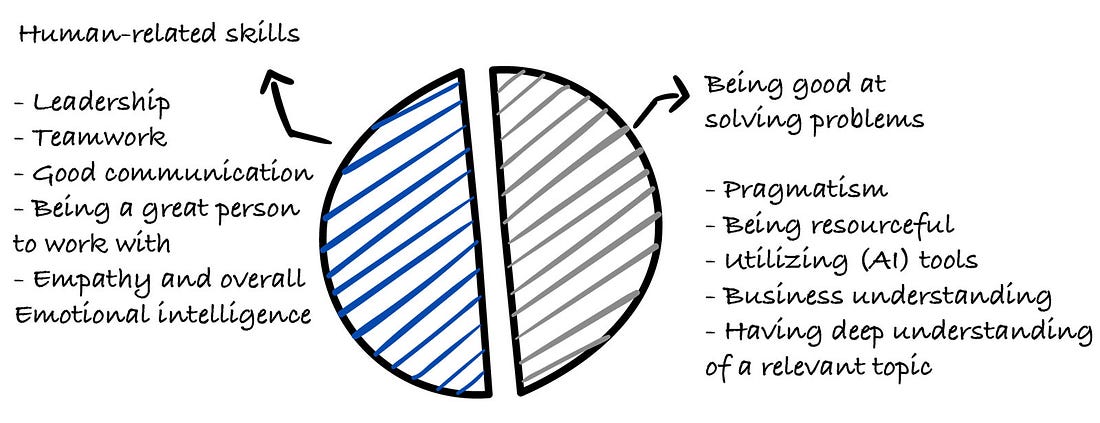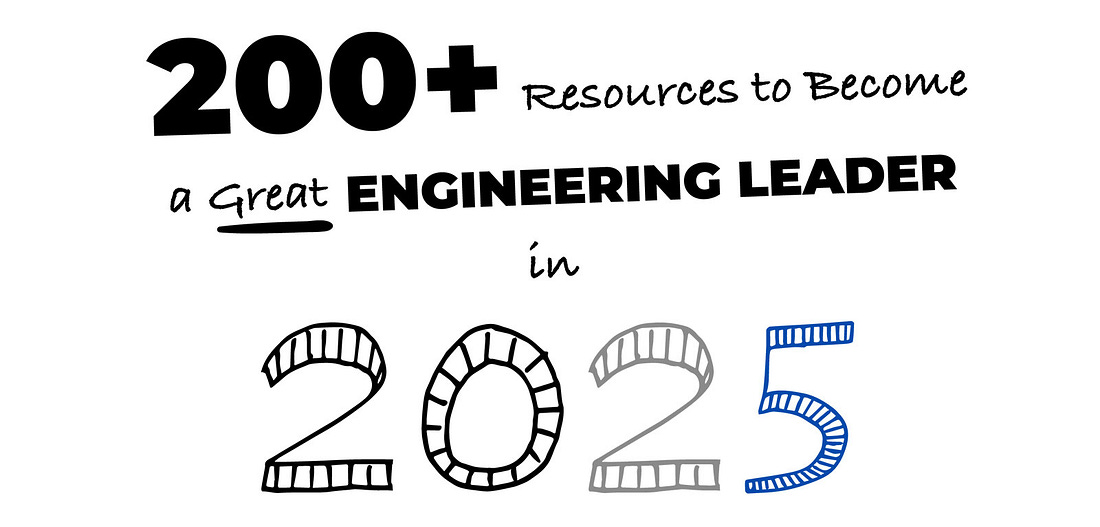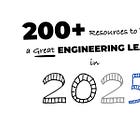How AI Is Impacting Engineering Leadership
- Gregor Ojstersek from Engineering Leadership <gregorojstersek@substack.com>
- Hidden Recipient <hidden@emailshot.io>
Hey, Gregor here 👋 This is a free edition of the Engineering Leadership newsletter. Every week, I share 2 articles → Wednesday’s paid edition and Sunday’s free edition, with a goal to make you a great engineering leader! Consider upgrading your account for the full experience here. How AI Is Impacting Engineering LeadershipRecap of the talk I did at the Tech Lead conference this week!This week’s newsletter is sponsored by DX. How to measure the impact of AI-assisted engineering? Companies are no longer as limited by the number of engineers they can hire, but rather, the degree to which they can augment them with AI to gain leverage. DX’s AI Measurement Framework offers a set of research-based metrics for measuring AI adoption and impact in your organization. Download the paper and start answering questions like:
Thanks to DX for sponsoring this newsletter, let’s get back to this week’s thought! IntroHad a great time presenting at the online Tech Lead conference earlier this week. The topic I presented was (you guessed it), the title of today’s article: How AI Is Impacting Engineering Leadership. I shared the two most impactful things I am seeing happening across the industry due to the effect of AI. The insights shared are based on my view and also speaking with many engineers and engineering leaders across the industry. I also shared tips on what to do to be a successful engineering leader in 2025 and beyond. In this article, I am sharing the recap of the talk, and you can also watch the recording of it below. You Can Watch/Listen to the Talk Below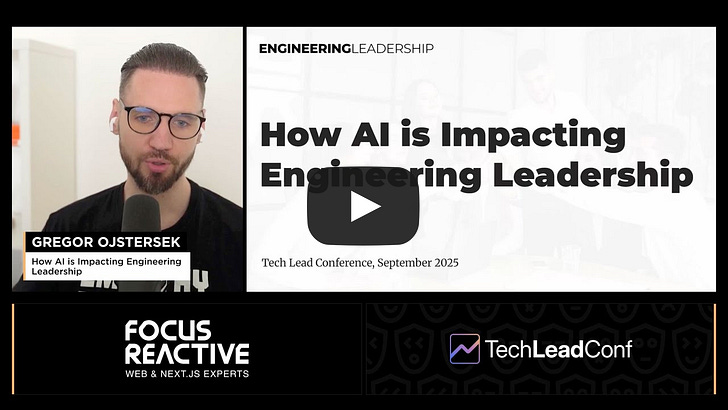 I’ll be doing a similar talk at the Tech Lead Conference in London as well. It will be on November 28. If you’ll be joining, I’d love to meet you there! For everyone else who doesn’t have a ticket yet, you can get it via my link for 10% off. Let’s get straight to the recap now. Impact 1: 51% of Engineering Leaders View AI's Impact as NegativeThis is quite an alarming data point from the LeadDev report, where they surveyed more than 600 engineering leaders. You can check my full breakdown on it in this article. When I first saw this data, I immediately wondered: What is going on here? What’s happening? Why do we see that? I asked many engineers and engineering leaders across the industry, both from Big Tech and Startups, and I came across some important findings, which will be shared next. Engineering Teams Feeling Less Motivated Than 12 Months AgoBefore we get into the findings, an important thing to mention also from the report is that engineering teams these days are feeling less motivated than they were 12 months ago. That's alarming as well. And that's also connected with engineering leaders believing that AI is impacting the industry negatively. So, let’s go next into why 51% of engineering leaders believe AI is impacting the industry negatively + why engineering teams feel less motivated than they felt 12 months ago. Sensationalistic Predictions About AI From Known Public Individuals are the #1 reasonIt all starts with sensationalistic predictions regarding AI from known individuals. You have probably seen a lot of these across social media or different media platforms. Example #1: Mark Zuckerberg saying that AI will replace mid-level engineers in 2025 Example #2: Anthropic’s CEO mentions AI could spike unemployment to 10 to 20% in the next 1 to 5 years, and believes that AI could wipe out half of all entry level white collar jobs. Example #3: Amazon’s CEO Andy Jessy said AI will reduce its corporate workforce in the next few years.
Company Leaders Experiencing FOMO When it Comes to AIExample #1: Shopify’s CEO enforcing the use of AI with claims:
I shared my thoughts on this in detail in this article: Example #2: Fiverr’s CEO telling everyone AI is coming for their jobs Engineering Leaders and Teams Operate Within Unrealistic ExpectationsSo, company leaders experiencing FOMO regarding AI then trickles down to engineering leaders and their teams, needing to manage such unrealistic expectations. Here are some of the unrealistic expectations I have heard:
Here is the Full Visual OverviewThe people who feel this the most are the ones who actually do the work. It starts with sensationalistic takes, which are the reason why company leaders experience FOMO when it comes to AI, and then engineering leaders and their teams need to operate within unrealistic expectations. So what to do? I’ll give advice for both company leaders and engineering leaders next. My Advice to Company Leaders and Engineering Leaders
More tips in this article: Advice Particularly For Engineering Directors, VPs, and CTOs
This is advice from Miqdad Jaffer, Product Leader at OpenAI. We did a recent collaboration, and this was one of the most important insights mentioned in that article. You can read the full article here: Also, he mentioned that the Engineering strategy is actually the same as the AI product strategy. So you should be the one who is dictating the way AI is used across the org. The reason for this is that engineering leaders understand the whole cycle. And especially the “how” part is very important and can be the difference between doing something in 3 days or 300 days. And nobody else (outside of engineering) can understand that. What you need to focus on as well is the what, when, and the why. That is very important, and that takes a bit more business and product understanding. Anyway, this is very important in 2025 and beyond -> that you, as an engineer or an engineering leader, become more business and product-minded. And also, this is a really interesting image (below). BOTH the execution and strategy are moving closer to engineering. From Miqdad Jaffer, OpenAI's Product Leader:
Impact 2: Engineering Roles Are Getting Closer TogetherNow, let’s go into the second impactful thing that I see across the industry. I see engineering roles just getting closer and closer together. For example:
And a similar trend for PMs and Engineers. The role “Product Engineer” is getting more and more popular. So, as I mentioned above, becoming product/business-minded is going to be more and more important. And I believe the roles are just getting closer and closer together + the line is going to get more blurred as time goes on. Here is Why:
I’ve already predicted this trend in this article, and you can read more insights there: What to Do to Be a Successful Engineering Leader in 2025 and Beyond?The more things are becoming robotic around us, the more important human-related skills are going to become. Leadership, teamwork, good communication, being a great person to work with, empathy, and overall emotional intelligence. All of these skills can’t be replaced by AI, and you being good at it is going to be immensely valuable to the organization. And the second part is being good at solving problems: being pragmatic, being resourceful, having a good network of people you can talk to, and ask questions, and also having a list of resources that you can refer to anytime. And obviously, utilizing AI tools, business understanding, as we mentioned before, and also having a deep understanding of relevant topics. This is also common these days → I see people coming to the industry with a shallower understanding of engineering fundamentals than 10 years ago. So having a good understanding of engineering fundamentals is going to make you very, very valuable. To Help You With This → List of Resources to Becoming a Great Engineering Leader in 2025 and BeyondLast wordsLet’s end this article with the following:
You got this! Liked this article? Make sure to 💙 click the like button. Feedback or addition? Make sure to 💬 comment. Know someone that would find this helpful? Make sure to 🔁 share this post. Whenever you are ready, here is how I can help you further
Get in touchYou can find me on LinkedIn, X, YouTube, Bluesky, Instagram or Threads. If you wish to make a request on particular topic you would like to read, you can send me an email to info@gregorojstersek.com. This newsletter is funded by paid subscriptions from readers like yourself. If you aren’t already, consider becoming a paid subscriber to receive the full experience! You are more than welcome to find whatever interests you here and try it out in your particular case. Let me know how it went! Topics are normally about all things engineering related, leadership, management, developing scalable products, building teams etc. You're currently a free subscriber to Engineering Leadership. For the full experience, upgrade your subscription. |
Similar newsletters
There are other similar shared emails that you might be interested in:
